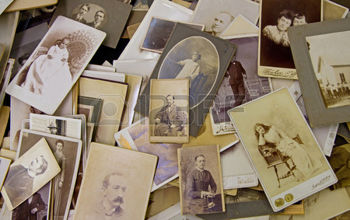Hello again. I know it’s been a while and I have exciting news. I finally made it back to the UK and got to meet Gordon Macdonald, 9th of Boisdale and his 2 sons. I am using the title “9th of Boisdale” because he is the direct eldest son descendant of Alexander III of Boisdale, who left a son and heir, Hugh Macdonald, IV of Boisdale. Hugh did leave a son who had issue.
In a previous post, I mentioned that I discovered that the Boisdale branch of the Macdonalds did not go extinct and since 2013, I’ve been documenting the proof and letting various societies etc. know about the discovery. I’m now the Genealogist for Clan Donald of Canada and belong to Clan Donald of Scotland and Clan Donald of Southern Ontario.
In May, my husband and I travelled to UK and arranged to meet Gordon in Chester, UK. The meeting was fantastic. My husband got to meet his distant cousins and I finally got to see the face of the family I’ve been researching about for 30 years! Gordon brought along his oldest son Daniel, and his son Liam.
I brought along a piece of the Macdonald of Boisdale tartan for each of them and gave them a booklet about their family history. It was a revelation for them for sure.
I’m including photos here of Alexander Macdonald the III of Boisdale, kindly shared with me by the current Chief of Clanranald, Ranald of Clanranald in 2013. Unfortunately, we have been unable to find any photo evidence of Hugh Macdonald IV of Boisdale, the last recorded heir to this family (although we have a photo of his wife Mary Hender Macdonald in our possession handed down in the family)
The photo to Alexander III of Boisdale’s left is Charles Edward Stuart Macdonald, born in 1841, in Swansea, Wales, where Hugh and Mary were living at the time. A few years later, the family relocated to Liverpool and that is where Gordon lives to this day! Charles had his parents living with him in the 1871 UK census so there was a record of Hugh having legitimate issue in that record. When Charles’ father Hugh died in 1875, Charles paid for the interment and the headstone which was also recorded in the burial records of Toxteth Cemetery in Liverpool. Charles also paid for the interment of his mother Mary in 1881 and she is buried with Hugh IV of Boisdale. There is a famous very well respected book written in 1881 called The Macdonalds Of Clanranald (1881) by Alexander MacKenzie that says “Hugh IV of Boisdale moved to England, married there, moved to Liverpool and was lost sight of” or that effect! Charles died in 1902 and left a son, Donald Norman Macdonald born in 1870 (Photo to the right of Alexander III…note how much Liam resembles him). He died in 1931 and left 4 children, including a son Norman Charles Macdonald born in 1910. Norman was in the RAF (next photo) and had only one child, Charles Norman Macdonald, born in 1950. Norman passed away in 1969. Charles and I communicated a lot between 2013 and 2018. He was my first contact with the family and although he had heard family stories about his famous “uncle Hugh” (actually his gggrandfather), he didn’t realize there was truth to the stories until I sent him all the paperwork proving it. Sadly, Charles passed away in 2019 and I never go to meet him. I was determined to meet his son Gordon and YAY, we managed to finally get together this May!







Now we wait. Clan chiefs are for life. The current 24th Captain of Clanranald, Ranald of Clanranald holds this position. Once he passes, Gordon has the right to challenge the descendancy, and he plans to do so. Along with supporters we’ve gathered over the years, and the fact that proper father to son descendancy in clan societies regarding clan chiefs is highly important, I think we should have an interesting few years.
I hope you found this post interesting. A book is being written by an author in New Zealand, detailing this new found information. She also happens to be a descendant of both the Boisdale AND Vallay branches of Clan Donald.
Please feel free to comment or ask me any questions!















